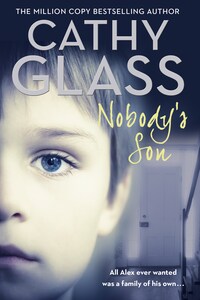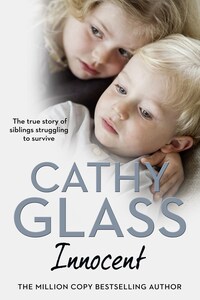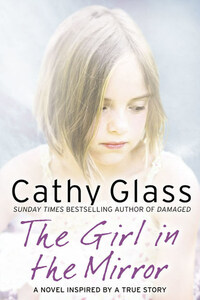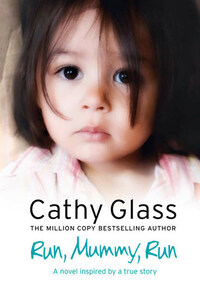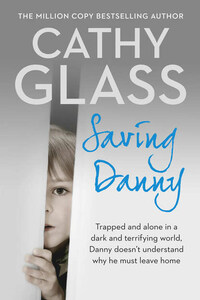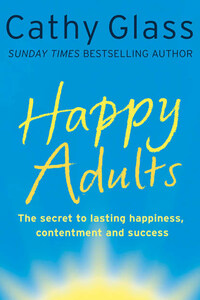![]()
Certain details in this story, including names, places and dates, have been changed to protect the family’s privacy.
HarperElement
An imprint of HarperCollinsPublishers
1 London Bridge Street
London SE1 9GF
www.harpercollins.co.uk
First published by HarperElement 2017
FIRST EDITION
© Cathy Glass 2017
Cover layout design © HarperCollinsPublishers Ltd 2017
Cover photograph © Deborah Pendell/Arcangel Images (boy, posed by model); Shutterstock.com (background)
A catalogue record of this book is available from the British Library
Cathy Glass asserts the moral right to be identified as the author of this work
All rights reserved under International and Pan-American Copyright Conventions. By payment of the required fees, you have been granted the nonexclusive, non-transferable right to access and read the text of this e-book on screen. No part of this text may be reproduced, transmitted, downloaded, decompiled, reverse engineered, or stored in or introduced into any information storage retrieval system, in any form or by any means, whether electronic or mechanical, now known or hereinafter invented, without the express written permission of HarperCollins e-books.
Find out about HarperCollins and the environment at
www.harpercollins.co.uk/green
Source ISBN: 9780008187569
Ebook Edition © February 2017 ISBN: 9780008187576
Version: 2017-03-02
A big thank you to my family; my editors, Carolyn and Holly; my literary agent, Andrew; my UK publishers, HarperCollins, and my overseas publishers, who are now too numerous to list by name. Last, but definitely not least, a big thank you to my readers for your unfailing support and kind words.
We immediately fell silent as the noise sounded again. The children stared at me anxiously before our eyes went towards the curtains drawn across the patio doors. It was cold and dark outside, but something was out there scratching and trying to get in. Not our cat; she was asleep by the warm radiator, and it didn’t sound like a cat anyway. I stood and gingerly crossed the room, my heart pounding and my senses on full alert. There were just the children and me in the house, and I tried to hide my fear from them as I eased one curtain aside and peered into the dark. Nothing. Whatever it was had vanished again like a phantom into the night.
I’d taken six months off from fostering after my husband had left me. There, I said it – my husband left me. It had been a difficult time, adjusting, supporting my children and reassuring them that it wasn’t their fault and their father still loved them. But the fact that I was now able to say out loud that my husband had left me meant I was coming to terms with it and moving on, just as my counsellor had said I would. I only saw her four times and she was also the vicar of our local church. Not that we’d been regular church-goers – Christmas, Easter, Mothering Sunday and the occasional family service – but I knew she was approachable, down to earth and offered counselling. She wouldn’t ask me to pray for my husband’s salvation or even forgive him, which I couldn’t do yet. Get over his cheating and lies and the rejection, yes, but not forgive him, not for making my children fatherless. She’d listened sympathetically, but more importantly she’d told me it was time to acknowledge that my marriage was at an end, that I’d done my best to salvage it and that I should now move on with my life.
In the six months I’d been away from fostering many changes had taken place, developments in procedure and practice that remain part of fostering today. I now had a link worker, Jill, also known as a support or supervising social worker, whose role, as her title suggested, was to support and monitor my fostering to make sure it was to a good standard, to check my log notes were up to date and that my training needs were met. Ongoing training and report writing were now part of fostering for carers and I had to keep a daily record of the child I was looking after, which included appointments the child had, their health and wellbeing, education, significant events and any disclosures the child made about their past. There were also regular reviews for the child and an annual review for the foster carer, and fostering was provided through agencies. I worked for Homefinders, an independent fostering agency with charity status. But of course the heart, the essence of fostering, remained the same. The foster family looked after a child or children, short or long term, who, for any number of reasons, couldn’t be looked after by their own parents, and their stories and past experiences were still heart-rending and varied. One change I didn’t like was that the children now had to call me their foster carer rather than their foster mum, as it was felt it might be confusing for them. It seemed a bit cold to me, but I had to abide by this as I did all the other fostering practices and regulations.
